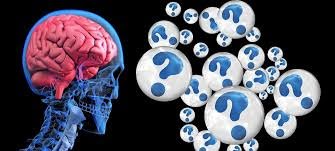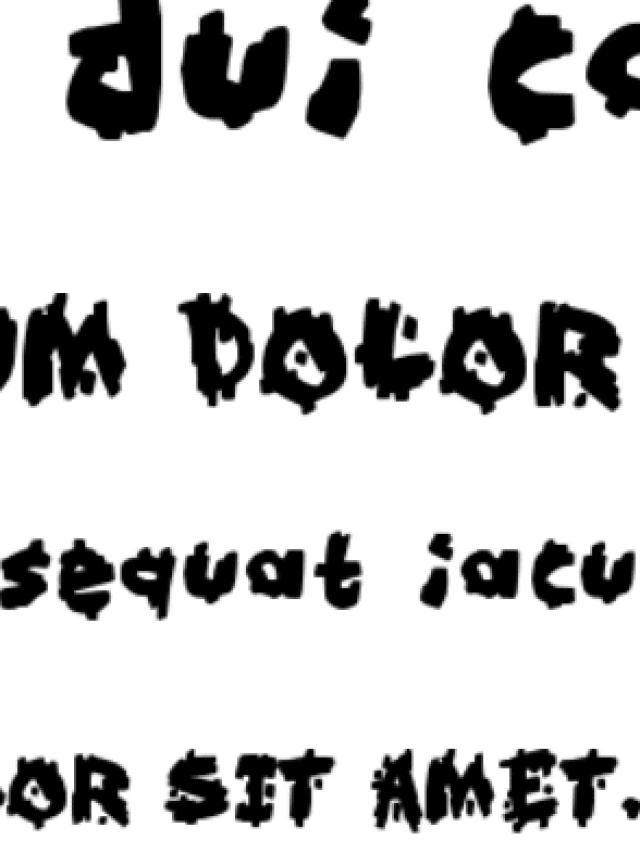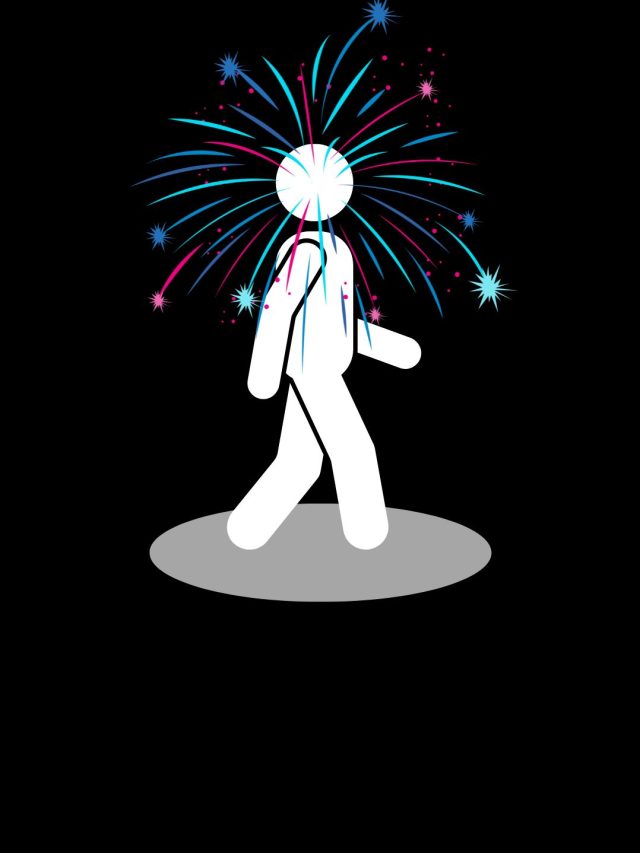What does the word Psychology mean? It’s obvious that psychology is about humans and behavior, but let’s take a deeper dive.
In case you are new to this area and want to study it, this article will give you a clear idea of what psychology means. I take a detailed look for your understanding 🙂
And, if you are in school and looking to study psychology in the future, you’ll get a good idea about what to expect. If you are reading this as homework for your psychology classes, read this article where I discuss how you should study the subject.
Take this 5-item quiz to assess how much you already know!
What is psychology?
Psychology is the exploration, description, and formulation of the brain and mind situated in a living body in relation to an environment with a deep focus on behavior (observable states), cognition (mental processes), and conation (motivation to behave).
Let’s split this into its components:
- Exploration, description, and formulation: This aspect makes psychology a scientific body of knowledge that tries to describe observed phenomena, uncover how they work, and predict what will happen.
- Brain and mind situated in a living body in relation to the environment: Psychology concerns itself with things that are alive and how they interact with elements around them (people, movement, objects, tools, goals, adaptation). However, the word behavior is used instead of psychology to describe the movement and interactions of elements for non-living things or things without brains.
- Deep focus on behavior, cognition, and conation: These 3 areas broadly describe the fundamental building blocks of the mind as we perceive it ourselves. The mechanisms and processes underlying this are often redefined as the science progresses.
Psychology definitions
American Psychological Association definition
Psychology is the study of the mind and behavior. The discipline embraces all aspects of the human experience — from the functions of the brain to the actions of nations, from child development to care for the aged. In every conceivable setting, from scientific research centers to mental health care services, “the understanding of behavior” is the enterprise of psychologists.
Merriam Webster definition
- The science of mind and behavior
- The mental or behavioral characteristics of an individual or group
- The study of mind and behavior in relation to a particular field of knowledge or activity
Some more variations of the meaning of psychology
- Psychology is the scientific investigation of how people behave, think, and feel. It includes underlying mechanisms that involve the environment, biology, and the mind.
- Psychological investigations try to describe, predict, analyze, and create actionable outcomes that help people. Actionable outcomes include therapy, learning design, altering protocols at a workplace, etc.
Today, psychology is closely related to fields such as cognitive science, neuroscience, economics, law, public health, UX & UI, marketing, and consumer behavior.

Here are some usages of the word I’ve come across.
- I want to understand the psychology of people who just pick up a gun and shoot.
- What is the psychology of a customer?
- Are you going to study my psychology and tell me who I am?
- You have to understand the psychology of farmers to understand what troubles them.
- Architects have to understand the psychological needs of their clients so their house becomes a home.
- Psychological experiments show that people do not understand what they really desire.
- I am going to study psychology and help people.
- Is psychology a science? Is it the same as philosophy?
- Economics depends on the psychology of people.
- Babe, help me understand your psychology, I am so confused.
- Why can’t we go to the reunion? You have psychological issues.
- What is the psychology of an abused kid?
- Your psychology is very bad. Your psychology is very good.
These are just sentences. It may not be hard to understand them at first, but let’s put the word under a microscope and study it.
Here are some more examples of what people think psychology means
- Personality (most common belief)
- Solutions for anxiety and depression
- Emotions
- Thinking
- Something inside the mind
- Relationship of strong/impactful events in life and one’s thoughts, behavior, and emotions
- Why people do what they do or buy what they buy
Note: The funny thing about personality is that people don’t see personality as their enduring pattern of behavior, reactions, thinking, worldview, etc. They think of personality as a broad term that accounts for everything about an individual. That is partly the reason why people associate personality & psychology so tightly. From a scientific perspective, psychology does study personality, but it is just one of the many factors that it studies.
Where does the word “psychology” come from?
Let’s look at the history of the word. Quoting it from Merriam-Webster.
The word psychology was formed by combining the Greek psychē (meaning “breath, principle of life, life, soul,”) with –logia (which comes from the Greek logos, meaning “speech, word, reason”). An early use appears in Nicholas Culpeper’s mid-17th century translation of Simeon Partliz’s A New Method of Physick, in which it is stated that “Psychologie is the knowledg of the Soul.” Today, psychology is concerned with the science or study of the mind and behavior. Many branches of psychology are differentiated by the specific field to which they belong, such as animal psychology, child psychology, and sports psychology.
What do people think psychology does?
People assume psychology students learn to:
- Predict behavior
- Understand the personality
- Mind reading (this never happens)
- Analyze people
- Sex, Relationships, Life advice
This is what people often assume; however, this is NOT always true.
What do people assume (incorrectly) about psychologists?
Popular psychology myths
- They can read minds.
- They can analyze you better than anyone else on the planet.
- They can talk and cure your problems.
- They have no psychological issues and never have conflicts (this one is my favorite).
What do psychologists actually do?
Help people understand their mental health and work with them to cope & adjust in life .- Study how many aspects of life relate to each other.
- Conduct studies to understand patterns of behavior & thoughts.
- Implement studies to provide therapy, counseling, and consultation.
- Work alongside different professionals to improve aspects of business, products, services, technology, communication, etc.
- Create self-help resources for people to cope independently.
This article on psychology career options could help you understand the wider industrial scope of psychology.
The nature and scope of psychology
Specializations and branches of psychology
The following broad branches of psychology will describe the overall nature and scope of psychology.
- Clinical psychology – the study, assessment, prevention, coping, and treatment of mental health issues and disorders such as depression & schizophrenia (example)
- Organizational & industrial psychology – the study of how professional environments function with respect to employment, assessment & recruiting, workplace wellbeing, conflict resolution, team building, etc. (example)
- Social psychology – the study of how people interact in social contexts and what variables affect social behavior, identity, and cognition (example)
- Cognitive psychology – the study of mental processes that enable thinking, feeling, language, art, etc. (example)
- Behavioral psychology – the study of human and animal behavior (example)
- Developmental psychology – the study of specific factors relevant to a certain age group or developmental stage across a lifespan and trends across the lifespan
- Evolutionary psychology – the study of human and animal behavior in an evolutionary context and the study of adaptability and deeply rooted tendencies (example)
- Forensic psychology – the study of how criminals behave and think
- Neuropsychology – the assessment of brain functioning in a clinical setting
- Positive psychology – the study of well-being and living a good life (example)
- Neuroscience – the study of the brain as a biological unit and its specifics that may or may not directly relate to behavior, thoughts, or feelings. It includes an understanding of how neurons communicate and function. (example)
- Sports psychology – the study, training, and coping of sportspeople
- School psychology – the study of a variety of psychological variables in a school context (example)
- Cyber-psychology – the study of human behavior with a focus on internet-based behavior (example)
These are just 14 of the broad specializations. There are many more – geriatric psychology, engineering psychology, counseling psychology, experimental and quantitative psychology, etc. You can snowball around these terms.
Overview of psychology as an academic discipline
People often mean to say personality, thoughts, behavior, thinking, issues, motives, needs, etc., when they talk about psychology. And sometimes, vice-versa. As you’ve seen, the scope of psychology is huge, and it is has allied fields.
I’d like to point out the following key aspects of psychology: It is a scientific investigation. That means there are experiments, there are numbers, there is data, there is sampling, there is rigorous use of psychological tools, description, prediction, logical criticism, systematic observation, and beyond all, it is evidence-based.
Psychology looks at all kinds of people and social groups, animals included. Not just those with mental health problems. It is the study of the mind and behavior – everything included.
You’d see a standard undergraduate, graduate, and Ph.D. flow to psychology. With many opting for a practioner’s license after graduation.
Psychology book recommendations
These introductory textbooks & popular books are ideal for bachelor’s students and enthusiasts who want to learn psychology with more commitment than a quick Google search. Links to the books are Amazon affiliate links. This means I might receive a commission if you buy them, but at no extra cost to you:)
- Psychology[1] (This is the perfect introduction to psychology for undergrad and school, works for DIY learning, too). I recommend this book as your gateway book for psychology – a little bit of everything, level: Beginner, details: Excellent
- Cognitive Psychology for Dummies[2] (basic introduction to cognitive psychology)
- Cognitive Psychology: Mind and Brain[3] (cognitive psychology textbook)
- Oxford Dictionary of Psychology[4](one of the best psychology dictionaries, a must-have for all levels)
- The Skeleton Cupboard: The making of a clinical psychologist[5] (insights from a clinical psychologist’s experience)
- Psychology by Pearson[6] (standard reference book covering most topics for competitive exams)
- Abnormal Psychology by Pearson[7] (perfect foundation for clinical psychology)
- Games people play[8] (a good, slightly casual book on social psychology and relationships)
- Theories of Personality[9] (a good loose-leaf book on the basics of personality)
- The Cyber Effect[10] (a must-read book on the psychology of internet & technology use)
- Consciousness and the Brain: Deciphering How the Brain Codes Our Thoughts[11] (a magnificent merger of neuroscience, cognitive psychology, and philosophy)
- Clinical Neuroscience: An illustrated colour text[12] (ideal introduction to neuroscience & brain disease)
- Pets on the Couch: Neurotic Dogs, Compulsive Cats, Anxious Birds and the New Science of Animal Psychiatry[13] (Animal psychology with all the fun and cuteness)
- The Champion’s Mind: How Great Athletes Think, Train, and Thrive[14] (detailed insights into sports psychology)
Psychology blog resources
There is a lot of psychology content available on the internet. Where do you begin? Well, my site, for starters. But I want you to check out Dennis Relojo’s site Psychreg, too. He is the first blog psychologist, and he has compiled the ultimate list of psychology blogs on the internet. So, if you ever need to read 100s of articles on 100s of topics, that list will help you get started and quench your thirst for everything psychology. Check it out here[15].
FAQs
Psychology is offered as an academic discipline under both arts/humanities and science departments. Some fields related to psychology, like cognitive science and neuropsychology, have more scientific coursework with labs and computation than fields like counseling psychology and political psychology, which are more analysis-driven.
Psychology is called a soft science due to its humanities and philosophical history and methodologies. Psychology attempts to improve its scientific standing by improving peer review and adherence to the scientific method. However, due to the nature of the field, malpractice, and weak foundations, psychology is lacking in theory, experimental credibility, measurement, and predictive power to become a science like physics.
In most countries, including the US and India, a psychologist has to obtain a license to practice, just like a medical professional. Different countries have different criteria to obtain a license, and at the very least, require a master’s in psychology with additional training (Ph.D., M.Phil.) and pass the licensing exam.
Psychologists’ earnings depend on what they do for a career. Clinical psychologists in the US who have obtained a license and finished their Ph.D. can earn anywhere from $50 an hour to $300 per session. In India, a clinical psychologist can earn anywhere between Rs. 25,000 to 1,00,00 a month as a salaried practitioner and anywhere between Rs. 200 to Rs. 3000 per session as a private practitioner.
Psychologists working as domain experts, human resources, and writers generally have a market rate based on experience and skill. The potential to earn as a top expert in any industry is high, with fairly average entry-level salaries.
Yes, psychology as a field is in a crisis due to weak theoretical foundations, poorly conducted studies taught as facts in textbooks, and poor mental health regulation in many countries.
Apart from domain expertise and thorough knowledge of the field, a successful psychologist has excellent writing and communication skills, empathy, cultural sensitivity, and training skills. Academically inclined psychologists also develop good teaching and research skills. Depending on the profession, psychologists develop specialized training skills, marketing skills, coding, management skills, research/report/grant writing skills, and public communication skills.
No, there is no unified theory in psychology. The current state of psychology has the following attempts at unification: Combine different concepts given by different authors, eliminate unhelpful ideas from theories, merge small theories and computational models, map brain and behavior, conduct large-scale “connectome” mappings, equate neural processes with concepts and constructs in psychology, and develop better tools to operationally examine testable ideas. We are far from a unified theory that accounts for all measurable features of psychology.
Counselor (career, marriage, suicide prevention, abuse helpline, school, etc.)
Therapist (you’d be helping clients resolve mental health problems and treat disorders in a clinical setting)
Human resources (work setting: recruitment, psychometric testing, conflict resolution, activities planning, etc.)
Teaching (undergrad, grad)
Permanent faculty member
Research assistant, researcher (Masters, M.Phil., Ph.D.)
Rehabilitation services
Psychometric testing
Coaching in corporate skills, soft skills, etc.
Specific therapist: You specialize in some form of therapy (dance, music, REBT, CBT)
Pet Psychologist, Animal therapist
Content creators – Psychology-oriented writing, Marketing copy, Instructional design
Domain expert employees – Helping companies understand user behavior, conduct market research and marketing campaigns, develop UI UX
Consultancy (non-clinical) – Consult businesses on their plans by understanding consumer psychology, integrating psychological research insights into someone else’s products
Non-academic workshops & lectures – Design and deliver specific workshops and talks to bring value to stakeholders – learning workshops for parents & students, food packaging for local brands, etc.
In many parts of the world, most practicing psychologists have counseling skills. Many psychologists are hired as school, hospital, and office counselors. However, the role of a counselor does not require a psychology license. Counselors often study allied health domains like psychiatric nursing, social work, public health, etc.
While not technically a pseudoscience, psychology has many shortcomings as a science. First, it’s still a young field. Second, many experiments fail to give reliable insights. Third, being a popular field, the amount of misinterpretation is high. Still, the goal of psychology is to understand behavior scientifically using the scientific method, which means ideas that don’t work are tested and discarded in favor of new ideas that work.
Therapy, or psychotherapy, is offered by Clinical Psychologists as a planned protocol to help a client/patient meet mental health goals such as healing from trauma, coping with grief, adjusting to life, managing problems like negative thoughts, lack of motivation, depression, insomnia, etc.
Psychologists, like others, live a life, drink, have sex, have fights, have mental health issues, are sometimes better at dealing with a lot of hard things, sometimes really screw up, etc. And they take a variety of career paths. The same variation expected in other fields of study is expected in those who study psychology.
Before you enroll in a degree, test the waters by opting into a short online course in an area you want to explore. If you have more resources to commit, opting in for a 6 month or weekend-only course can help the transition. Coursera, Udemy, MIT Open courseware, etc., have many introductory courses. If you want to study everything in moderation on your own time, purchase an undergraduate book and follow it like a fresher.
Sources
[2]: https://amzn.to/2Udeq2t
[3]: https://amzn.to/3nhCD4b
[4]: https://amzn.to/32wG1Qs
[5]: https://amzn.to/3eURO03
[6]: https://amzn.to/2JS96PT
[7]: https://amzn.to/3ePIM4u
[8]: https://amzn.to/2UhVLCs
[9]: https://amzn.to/3nhHyCb
[10]: https://amzn.to/3f03hf3
[11]: https://amzn.to/3kkUF3x
[12]: https://amzn.to/3pg5U0J
[13]: https://amzn.to/3eLoQQg
[14]: https://amzn.to/3plZnS6
[15]: https://www.psychreg.org/list-psychology-blogs/

Hey! Thank you for reading; hope you enjoyed the article. I run Cognition Today to capture some of the most fascinating mechanisms that guide our lives. My content here is referenced and featured in NY Times, Forbes, CNET, and Entrepreneur, and many other books & research papers.
I’m am a psychology SME consultant in EdTech with a focus on AI cognition and Behavioral Engineering. I’m affiliated to myelin, an EdTech company in India as well.
I’ve studied at NIMHANS Bangalore (positive psychology), Savitribai Phule Pune University (clinical psychology), Fergusson College (BA psych), and affiliated with IIM Ahmedabad (marketing psychology). I’m currently studying Korean at Seoul National University.
I’m based in Pune, India but living in Seoul, S. Korea. Love Sci-fi, horror media; Love rock, metal, synthwave, and K-pop music; can’t whistle; can play 2 guitars at a time.




























well, this was very helpful. thank you
Thank you!
Great article
That's awesome, good to know!
That cleared up a few cobwebs for me! Thanks.